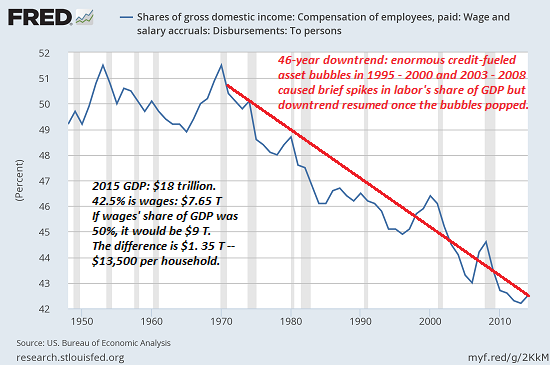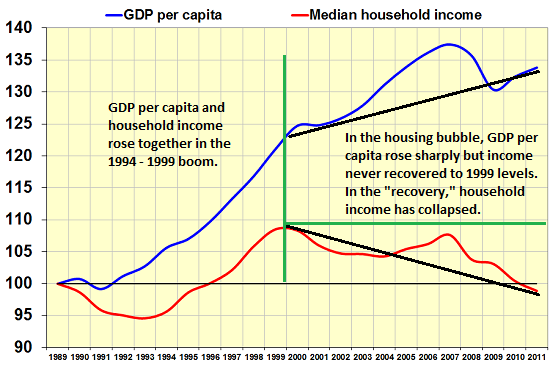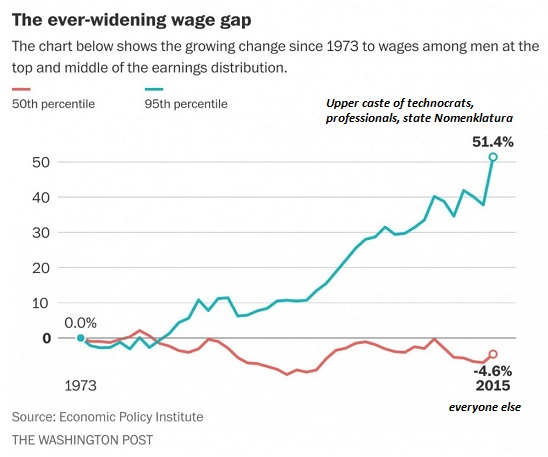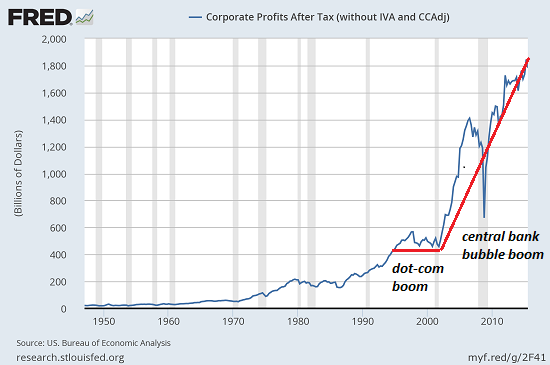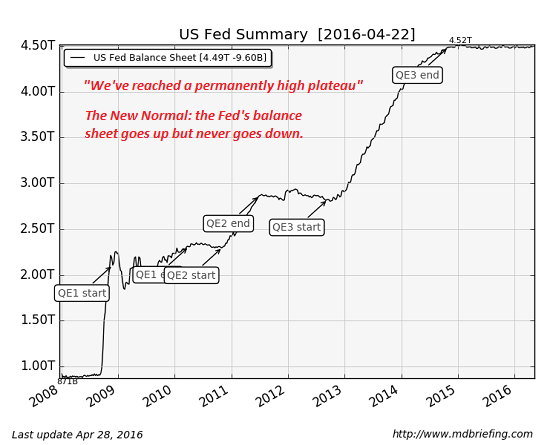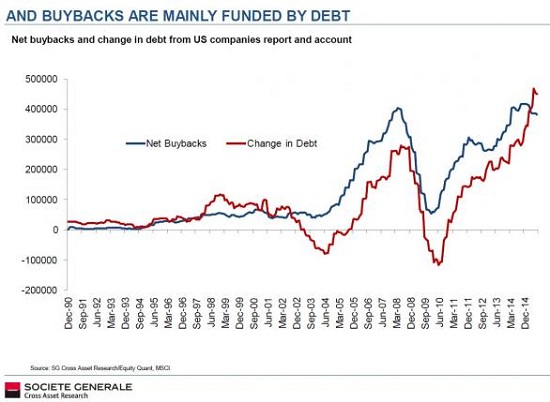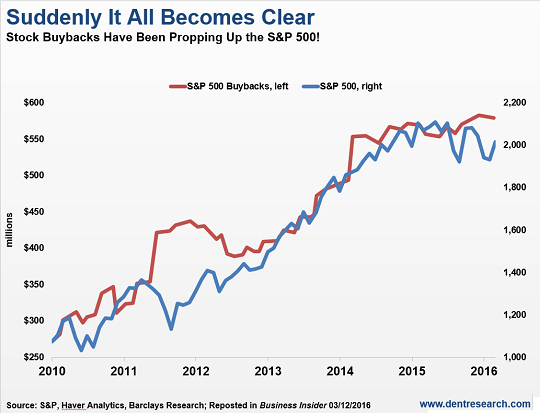If it isn't a Depression, it's a very close relative of a Depression.
Just for the sake of argument, let's ask: what if we're in a Depression but don't know it? How could we possibly be in a Depression and not know it, you ask? Well, there are several ways we could be in a Depression and not know it:
1. The official statistics for "growth" (GDP), inflation, unemployment, and household income/ wealth have been engineered to mask the reality
2. The top 5% of households that dominate government, Corporate America, finance, the Deep State and the media have been doing extraordinarily well during the past eight years of stock market bubble (oops, I mean boom) and "recovery," and so they report that the economy is doing splendidly because they've done splendidly.
I have explained exactly how official metrics are engineered to reflect a rosy picture that is far from reality.:
I also also asked a series of questions that sought experiential evidence rather than easily gamed statistics for the notion that this "recovery" is more like a recession or Depression than an actual expansion:
Rather than accept official assurances that we're in the eighth year of a "recovery," let's look at a few charts and reach our own conclusion. Let's start with the civilian labor force participation rate--the percentage of the civilian work force that is employed (realizing that many of the jobs are low-paying gigs or part-time work).
Does the participation rate today look anything like the dot-com boom that actually raised almost everyone's boat at least a bit? Short answer: No., it doesn't. Today's labor force participation rate is a complete catastrophe that can only be described by one word: Depression.
Wages as a percentage of GDP has been in a 45-year freefall that can only be described as Depression for wage earners:
Notice what happened when the Federal Reserve started blowing serial asset bubbles in 2000: GDP went up but wages went down. Is this a recession or depression? It's your call, but if you're the recipient of the stagnating wages, it's depressing.
Meanwhile, the top 5% who own most of the assets that have been bubbling higher have been doing great. The Depression is only a phenomenon of the bottom 95%:
Look at the rocket ship of corporate profits. What happened around 2001 to send corporate profits on a rocket ride higher? The Fed happened, that's what:
Here's the Fed balance sheet: to the moon!
Free money for financiers and corporations fueled the stock market buyback boom:
Which fueled the stock market bubble:
Is the economy in a Depression? Not if you're a corporate bigwig skimming vast gains from corporate buybacks funded by the Fed's free money for financiers.
But if you're a wage earner who's seen your pay, hours and benefits cut while your healthcare costs have skyrocketed--well, if it isn't a Depression, it's a very close relative of a Depression.
Recent interviews:
NOTE: Contributions/subscriptions are acknowledged in the order received. Your name and email remain confidential and will not be given to any other individual, company or agency.
|
Thank you, Christine W. ($5/month), for your splendidly generous Patreon pledge to this site-- I am greatly honored by your support and readership.
| |

